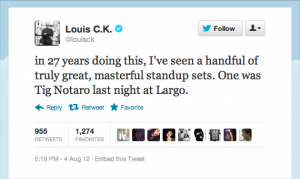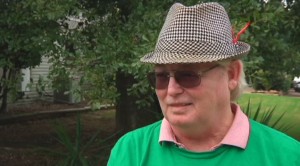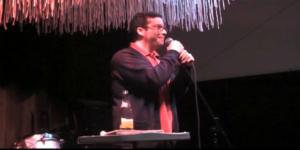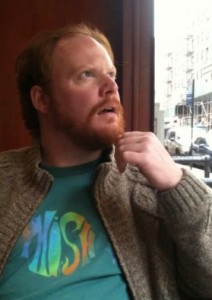From Joey Franklin’s “Essaying ‘The Thing'” in this month’s Writer’s Chronicle, which seeks, peculiarly, to understand “masters of the form” of the lyric essay by reading their work alongside Pound’s “In a Station of the Metro”:
Like the Imagiste poet seeking algebraic complexity distilled into a single image, the lyric essayist seeks complexity in a single, short fragment. And like the Imagiste poet, the lyric essayist expects reader participation. David Shields practically quoted Pound [. . .] when he said that short-short prose reminded him “of algebraic equations or geometry proofs.” And in that same sentence, Shields alludes to reader participation when he also refers to short-shorts as “lab experiments or jigsaw puzzles or carom shots or very cruel jokes. They’re magic tricks, with meaning.” The reader is the Petri [sic] dish in which the lyric essay foments [. . .] or the unwitting butt of that cruel joke, pulled in briefly by the trickster only to be left sitting on the curb wondering what happened to his wallet. A successful lyric essay and a successful magic trick (and a successful Imagiste poem for that matter) depend in large measure on the same thing: the audience’s willingness to go along with the conceit, to ask “how did she do that?”
Has there ever been a more thorough argument of the lyric essay as showoff piece? For what else is the magic trick but a performance to passively watch, removed as we are from the stage and (more importantly) what’s behind it, what’s up the performer’s sleeve, only the wait for the tada that leaves us gape-mouthed in wonder?
Showoff pieces are great in art. “Flight of the Bumblebee”. Maria Bamford’s world geography bit. Andy’s Eight Elvises. But I’m not sure they’re great for the essay—especially if what one wants from the essay is Atwan’s proverbial mind at work. That there is two things: a(nother) mind, and the workings of that mind. If there’s any form of truth I want from NF it’s an honesty about its author’s mind’s workings, because where else am I going to get it?[*] But Franklin’s understanding of the lyric essay makes it rely on so much sleight-of-hand. Conceit has the same root as deceive. It means to take, to ensnare.
For the essay, lyric or otherwise, to see its reader as a petri dish or a butt is to expect not participation from her but duly granted object status. Abject status, even. It desires a rube-y audience to make go “Gee whiz!” I don’t think the essays Franklin’s reading operate like this, because why would a form so intimate and personal, so ripe for direct communication, want to treat its reader this way?
For my part, I want to leave readers full of words, not at a loss for them.
- Is why I got so mad at that part of Jeannette Walls’s Glass Castle. It was her narrator-self intruding on her author-self with so obvious an after-the-fact fabrication of past thought, purely for the sake of good narratoring.↵











